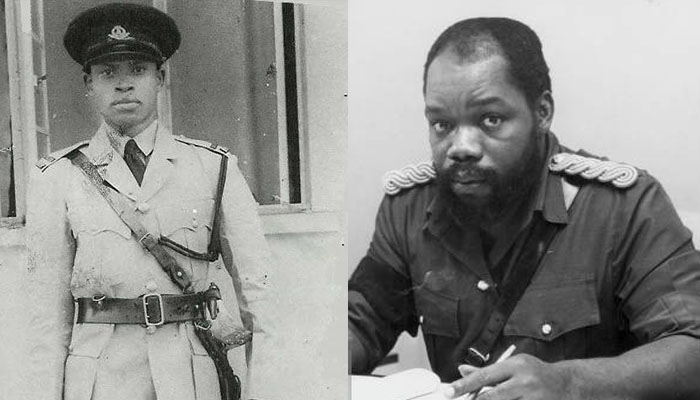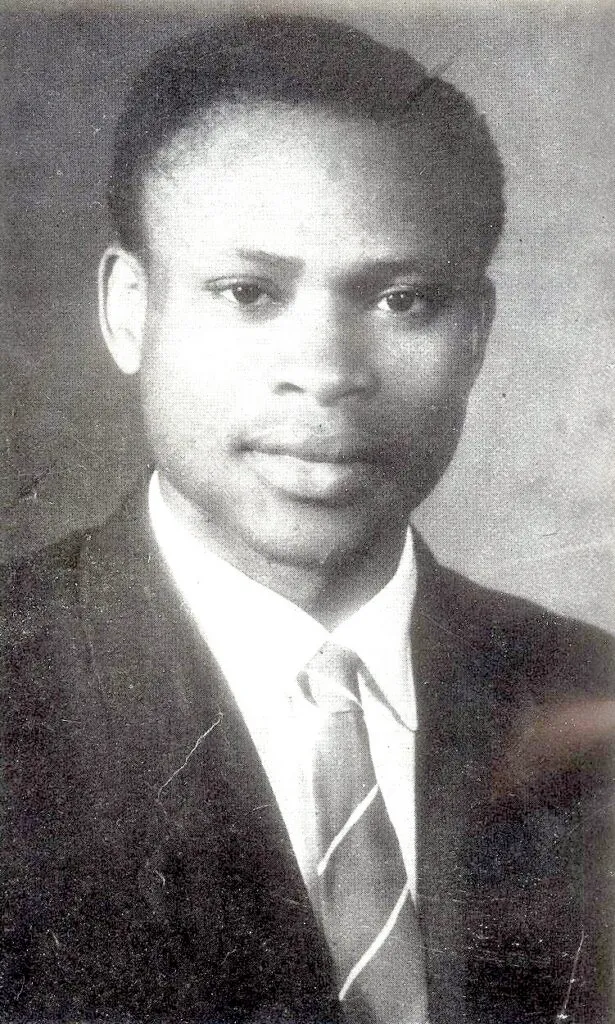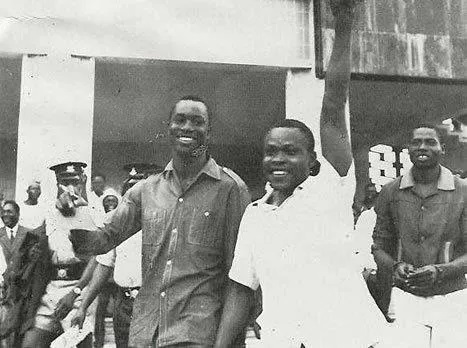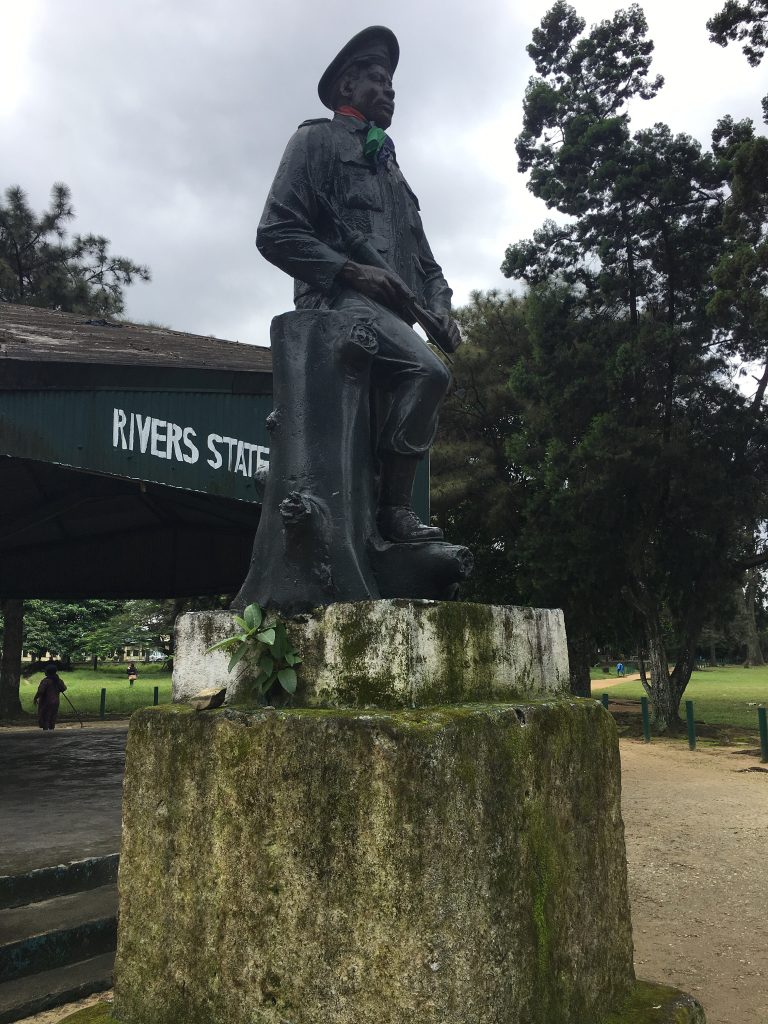Last Updated on December 10, 2022
Isaac Adaka Boro isn’t a name many people know. But long before Odumegwu Ojukwu announced the Republic of Biafra, Isaac Adaka Boro led a secessionist movement against the Federal Republic of Nigeria. He organized a militia to seize control of the Delta region and sort to establish it as a separate state. A goal that was similar to Odumegwu Ojukwu’s. Well, it is actually believed that Boro inspired this movement and paved the way for several other secessionists that came after him. Here is the story of Isaac Adaka Boro, the Niger Delta Republic Secessionist.

Who Was Isaac Adaka Boro?
Isaac Adaka Boro was a Nigerian militant leader who led the Niger Delta Republic secession attempt in 1966. He was born in the town of Biara in the Kufana Chiefdom of Delta State. Boro, as he was called, worked as a teacher before joining the Nigerian Nationalities and Citizenship Commission. In 1963, he became the President of the Ijaw Youth Council (IYC). The IYC was formed to protect the interests of the Ijaw people in the Niger Delta region.
Then, Boro declared that his goal was to create an independent state in the Niger Delta region. He believed that the Ijaw people were being marginalized by the Nigerian government. In May 1966, Boro declared independence of the Niger Delta Republic. But unfortunately, the Niger Delta Republic secession attempt was short-lived. Boro and his followers were arrested by the Aguiyi-Ironsi Federal Military Government for treason. Boro was then jailed. But, he was later released in a government amnesty. Sadly, he died in a car accident later that year at 29.

Isaac Adaka Boro
Born in Port Harcourt, Rivers State, Isaac’s father was a middle-class clerk, and his mother was a housewife.
After graduating from university, he worked as a civil servant in the Ministry of Finance. In 1962, he quit his job and returned to the Niger Delta to set up a law practice.
In May 1967, Boro declared the Niger Delta Republic a short-lived autonomous region that included the states of Delta, Bayelsa, and Rivers.
He was so radical that while still a student, he sued the federal government to have the 1964 general elections declared invalid. Additionally, he pioneered the introduction of campus transportation. Boro studied the writings of well-known revolutionaries like Fidel Castro and paid attention to the perpetual political issues in Nigeria.
After resigning from UNN in 1965, he relocated to Lagos. Then, he formed the political organization WXYZ along with Nottingham Dick and Samuel Owonaru. The movement agitated for more Ijaw control over the advantages of oil money.
The Twelve-Day Revolution
A few weeks after the military takeover in January 1966, on February 23, 1966, Niger Delta secessionist Isaac Boro proclaimed the region’s separation from the rest of Nigeria. Boro was only 27 years old at the time. Then, he named the country the Niger Delta Republic. However, the country only lasted for 12 days.
He organized the young men he had been training at a militia camp behind his father’s property in Kaiama, Bayelsa State, into the Niger Delta Volunteer Force. In his speech, Boro promised his audience that they would show the world their feelings about oppression. Boro declared his dedication to justice and the truth. Even in the face of death, he was confident of victory. His pronouncement was the first time the unity of Nigeria would be put to the test. As the source of the country’s wealth, the Niger Delta, according to Boro, has endured years of neglect and underdevelopment.
Unfortunately, the Federal Government, led by Major-General Johnson Thomas Aguiyi-Ironsi, and the Governor of the Eastern region Chukwuemeka Ojukwu, who ironically would undertake the same action by proclaiming the Republic of Biafra a year later in May 1967, violently suppressed the 12-day-long protest.
After being found guilty of treason, Boro and his accomplices received a death sentence. The only thing wrong with Nigeria, he had said during his trial, was that she acted without mercy. Then, the military government of General Yakubu Gowon, who took over after the assassinated Ironsi, gave Boro amnesty. This was done on the verge of the Nigerian civil war in May 1967. Following his release, he joined the Nigerian Army, where he was later promoted to the rank of Major.

Isaac Adaka Boro in the Nigerian Civil War
At Escravos, Boro briefly trained a group of men who had offered to serve under him. Under Colonel Benjamin Adekunle’s leadership, his unit was later attached to the 3 Marine Commando Division (originally 3 Marines). The training of Boro’s 1000 Rivers soldiers was “hurriedly and inadequately done with little or nothing in the way of training facilities and resources,” according to former president Olusegun Obasanjo in his book “My Command.”
Though they had received inadequate training, he still recognized their achievements in the Army. Major Isaac Adaka Boro and his soldiers achieved many victories during the war. Their success in the regions surrounding Opobo, Obodo, Opolom, Andoni, Oranga, and Buguma can be attributed to their familiarity with the creeks of the Niger Delta, their command of the local languages, their capacity to survive off the land, and their quick movement.
Even though Colonel Adekunle got all the glory for their victories, they battled valiantly to free Nigeria’s most important oil and gas region from the Biafran army.
Isaac Adaka Boro’s Death
Isaac Adaka Boro’s death is surrounded by many controversies. According to some sources, he died in an auto crash the same year he was granted amnesty. Some blame Colonel Benjamin Adekunle for Boro’s death. He was said to have considered Boro a threat to his political ambitions. Also, some sources claim that the Igbos rose against him because they thought he had betrayed them by joining the Nigerian state to fight against Biafra. Others claim he died during the civil war near Okrika. He was 29 years old when he died.
Isaac’s young brother, David Boro, who was still a teenager at the time of his brother’s death, discussed this and said that his brother did not regard himself as a soldier. David claimed that Boro was a disgruntled freedom fighter who expected immediate results and joined the army just to win the war, vowing to quit once it was over. He continued by saying that his brother’s zeal cost him his life.
According to former president Olusegun Obasanjo’s book, Isaac Adaka Boro was killed by a rebel soldier whom he met while on a personal visit. His death’s mystery made the soldiers’ morale decline, and their fortunes started to dwindle.
Major Isaac Jasper Adaka Boro was laid to rest in the Ikoyi Cemetery in Lagos State. However, in 2013, his remains were dug up and moved to Yenagoa, the capital of Bayelsa state.

Isaac Adaka Boro’s Legacy
The 12-Day Revolution of Isaac Adaka Boro was the first of numerous uprisings against the Federal Republic of Nigeria. Both violent and nonviolent Niger Delta activists, like Ken Saro-Wiwa, have cited him as an inspiration. The Ijaw nation’s awareness of the terrible conditions of their areas, which are home to significant oil wells, was never before raised as a result of Boro’s fight for equity.
In Bayelsa state, May 16 is designated as a day to honor his contributions to Ijawland and recall his defense of the Niger Delta. In addition, a park in Port Harcourt, Rivers State, is named after Isaac Adaka Boro.
The last surviving member of the Niger Delta Volunteer Force was Captain Sam Owonaru, who served as Boro’s second in command. Prior to his passing on June 16, 2020, Owonaru indicated that their failure to manage and control their resources was the cause of their agitation. The sad part is that the situation has not changed.
Although Isaac Adaka Boro’s revolt was unsuccessful, it provided a platform for other resource control activists and raised awareness of the situation in the Niger Delta.
Boro’s actions demonstrated the power of the Niger Delta region and its ability to resist central government control. Today, Boro is remembered as a hero by many people in the Niger Delta region. And his legacy continues to inspire resistance to oppressive government control.
Before you go…
Hey, thank you for reading this blog to the end. I hope it was helpful. Let me tell you a little bit about Nicholas Idoko Technologies. We help businesses and companies build an online presence by developing web, mobile, desktop, and blockchain applications.
As a company, we work with your budget in developing your ideas and projects beautifully and elegantly as well as participate in the growth of your business. We do a lot of freelance work in various sectors, such as blockchain, booking, e-commerce, education, online games, voting, and payments. Our ability to provide the needed resources to help clients develop their software packages for their targeted audience on schedule is unmatched.
Be sure to contact us if you need our services! We are readily available.











